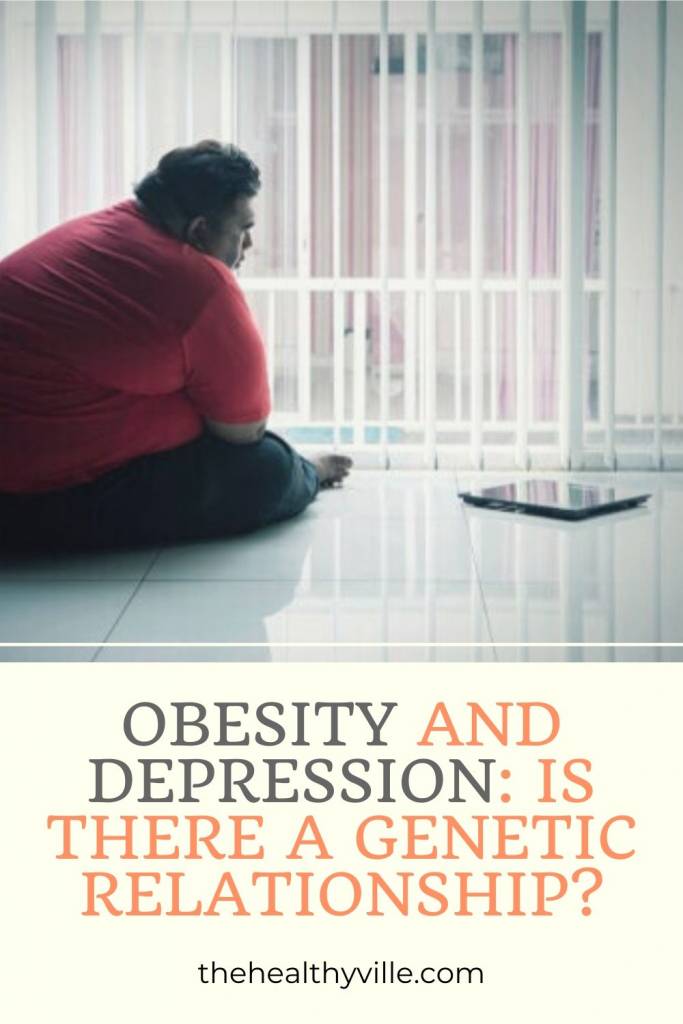A link between obesity and depression have always been made, considering one can cause the other and vice versa. But is there a genetic relationship?
It is clear that there is a relationship between depression and obesity, based on research in this regard that has already been carried out. However, we do not yet know for sure if these two disorders have a genetic or other link.
Science has found relationships between depression and obesity, but it is still unclear whether this is a genetic link or that is due to other factors. At the moment, the available data are contradictory and do not allow us to draw a definitive conclusion.
There are several studies that talk about a link between depression and obesity. In fact, one of those studies directly states that such a link is genetic. However, new research has questioned these approaches.
It has even been suggested that it is obvious that there is more depression in obese people, simply because of the psychological and social implications of being overweight. In turn, people with depression change their eating habits and this can lead to being overweight.
Let’s see, then, what is the information about it in the scientific community.
Body mass index and depression
A study at the University of Exeter (England) and the Cancer Research Center of the University of South Australia, in 2018, is the most complete so far. In its preliminary conclusions, the research indicates that a high Body Mass Index -IMC- implies a high risk of depression.
In the basis of the research lays data from a bank of genetic information on 50,000 people between the ages of 37 and 73, people with depression, against 29,000 of people without depression
For every 4.7 points of increase in BMI, there is an increase in the probability of having depression by 18%. In the case of women, this percentage rises to 23%. The study shows that men who were too thin also havea higher risk of depression.
Obesity and depression: a genetic link?
In 2012, a another study by researchers from the University of Granada -Spain- was published, directed by Dr. Margarita Rivera Sánchez, in which suggestions are that there is a genetic link between depression and obesity.
The research shows that depression modifies the effects of the FTO gene, the “obesity gene.” The consequence of this, according to what the study indicates, is that people with depression have an increase in their Body Mass Index (BMI).
To reach these conclusions, also preliminary, a basis is the database of 2,440 individuals with depression, contrasting their data with a control group consisting of 809 healthy individuals. The analyzes show that obesity problems are more frequent in those suffering from depression.
The obesity gene?
In 2019 appears a new study, this time by the Skarmeta group of the Andalusian Center for Development Biology in Sevilla.
In this investigation they pointed out that in the last years about 2,000 studies have been published in which the FTO gene is referred to as the “obesity gene”. However, for these researchers, the data is incorrect. Although that gene is involved in fat metabolism, the true obesity gene would be iroquois 3 or IRX3.
IRX3 performs essential functions in virtually all human viscera and its action occurs mainly in the cerebral hypothalamus. The researchers indicated that only between 25 and 45% of cases of obesity are due to genetic causes.
Obesity and depression can be related in a vicious circle. The obese feel depressed by the psychological consequences, and the depressed feed worse by their condition
There is no depression gene
To wrap up the picture, in 2019 the American Journal of Psychiatry published a study led by Richard Border, a geneticist at the University of Colorado. This expert, together with his team, analyzed the genetic data of 620,000 people. From this they concluded that there is no depression gene.
The researchers have information on 18 genes that refer to as incidents or determinants of depression. At the end of the study they indicated that none of these, nor the associated groups, determine the depressive states. Each gene has only a tiny effect on mood disorders.
Read more: 9 Suggestions For Curing Depression With Food Which Are Better Than Medications!
This research spoils the idea that depression is an exclusively genetic disorder. It also discredits the approach that there is a “depression gene”. The involvement of hereditary factors does not exist. But suggestions are that they form a complex network of associated genes, which has not yet been discovered.
Don’t forget to SHARE the link between obesity and depression with your friends and family on your social networks!

